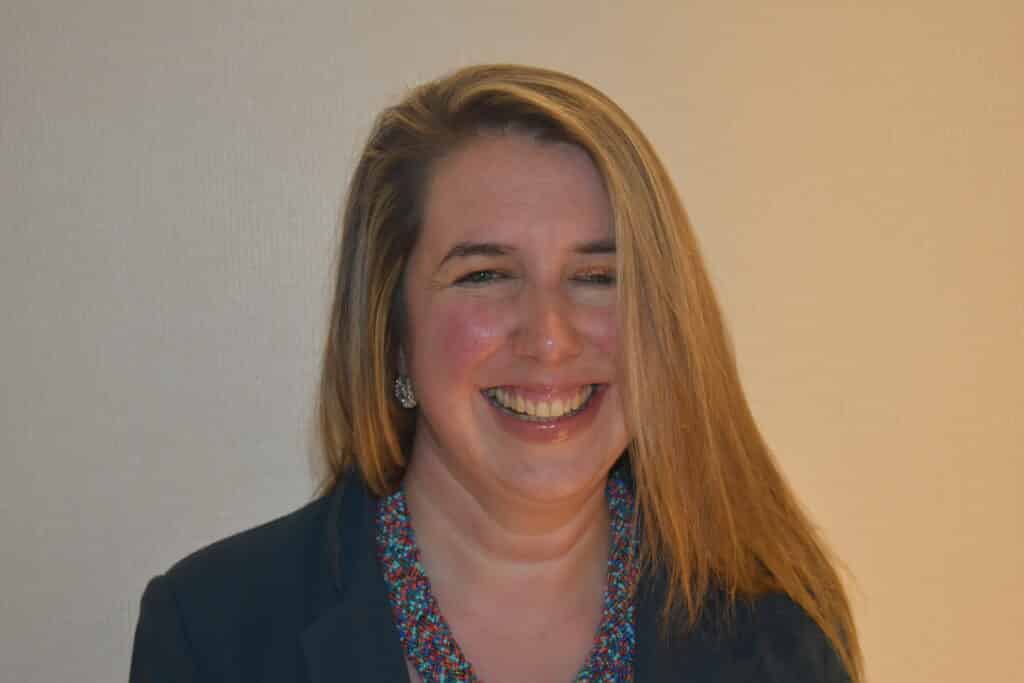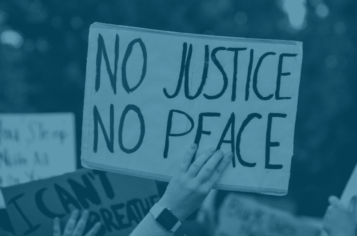This website uses cookies so that we can provide you with the best user experience possible. Cookie information is stored in your browser and performs functions such as recognising you when you return to our website and helping our team to understand which sections of the website you find most interesting and useful.
A sorrow and salve for our souls: reconciliation and mental health
Posted by Victoria Mason on October 9, 2023
Lament
When living with mental ill-health, words and relationships have power to bring hope or do harm. In this blog post on World Mental Health Day, Dr Joy Allan reflects on how we can build supportive communities where everyone can flourish.
As Virginia Woolf famously stated, speaking honestly about others requires honesty about oneself.[1] Thus, my name is Joy Allan, and I am part of the Difference team. Part of Archbishop Justin’s Reconciliation ministry, Difference is a five-session course equipping followers of Jesus to cross divides, navigate disagreement and pursue a just and flourishing world. My role is to help to build relationships between Difference , churches and communities. Therefore, I spend much of my time chatting to people, writing to people, preaching and writing on the ways we hope to follow Jesus in a conflicted and divided world. Yet, I too of course, live in that world, conflicted and divided as it is, and I live in it as someone who both researches and experiences (at times chronic) mental ill-health.[2]
A new name, a ripped open ‘box:’ curiosity
Many of us who live with mental ill-health know the damage done when others put labels on our conditions.
Particularly so for those of us who are Christians, the words of others can feel like they carry, not only the weight of the human, but the potential of the divine. Few words can shape and form us more than ‘God says…’ or the more ubiquitous ‘I just feel…’: ‘I just feel that your [insert mental health condition here] stems from a lack of Scripture/a lack of discernment/a lack of trust/ a lack of the Holy Spirit’s joy/a lack of exorcism.’ The list goes on. When many mental-health conditions can already lead us to struggle with false guilt, anxiety and rumination, such comments can intensify this experience. The words of others, intended to heal, can actually harm.
Words have the power not only to shape the recovery of those with mental ill-health, but to shape the condition itself. Thus, we can see the importance of the fundamental practice of curiosity, the practice of ‘listening to the stories of others and seeing the world through their eyes.’ In the case of those with mental health issues there is prophetic insight to be gained in seeing the world through those eyes.
In my PhD research, I discovered that some Christians used the language of the Holy Spirit to remonstrate against ‘unhappy’ Christians – but that the Spirit in the Old Testament was never once connected to the idea of happiness. In the lives of those I interviewed, this same trajectory continued, as they spoke of the Holy Spirit in the darkest places of their depression, despite their communities’ assumption that this would be otherwise. Our communities, it would appear, looked for performance, but the Spirit, brought presence – and presence in the hardest places. God, it would turn out, is more surprising than we might think. Be Curious: Where might you want to be curious, and explore the surprising places of sadness where God might be working?
Being ‘with’: presence
What then does that mean of those who claim to follow Him? If, as we have seen, God is present both in scripture and in more recent history in the painful, sad and sorrowful times of our lives, then surely the church should lead the way in emulating that. The church has the opportunity to be the place to turn when in sorrow, suffering or sadness.
If we struggle to do this, perhaps that is because we feel unequipped. After all, mental ill-health can be scary and, as we have seen, saying the wrong thing can be unhelpful.
If that really is our issue, then know that your silence can speak beautiful words. There is much to be said for those who walk in the dusty footsteps of their rabbi and ‘weep with those who weep.’ There is much to be said for a silent presence, or a family which will fold you in. I will state again what I have stated elsewhere, ‘people don’t want an eloquent response or an articulated view of serotonin and dopamine, people want your presence…’ The best story I heard in my whole project, was of a girl whose church did live this. At her bedside, when depression had nearly got the best of her, they sat beside her and said ‘you’re not hopeless and even if you are hopeless, we’ll keep coming.’ Be Present: What can you hold for another?
Being the body: reimagining
Yet, as one who has worked in mental health care, I know well that we also have to be realistic. Mental health is hard, and those of us who suffer can be hard work. Ask my husband on the days we try not to let my intrusive thoughts rule the day! As I wrote my PhD thesis, I wrote it off the back of some years spent in various positions of pastoral ministry. Thus, with every step I found myself asking ‘is this written in some ivory tower, or can it work?’ I thought of people in my congregation, my own friends, who were good people, but who just didn’t ‘do’ mental illness. People who, through fear of saying the wrong thing, or doing the wrong thing, would rather invest in another ministry. Which would be fine, except that mental illness affects so many of us. If this fear is given into, we will not be cared for, loved, or have a home to breathe in.
At this point I find it helpful to turn to the apostle Paul’s imagery in 1 Corinthians 12, that of ‘the body of Christ,’ the idea that we are Christ’s ‘hands and feet.’ Like all of Paul’s ideas, there are years of fun to be spent going into the context, content and causes of this phrase. Yet, nonetheless, there is also something deceptively simple here. Paul is saying simply this, we are not all the same, the body would not work if we were. I, for example, am very good at crying with people, but I would be useless if they wanted help to sort out their finances. Yet, my wonderful father who is not made to sit still and weep for too long, would be perfect. I hate films, yet I have friends who love them. I hate running, yet I have (surprisingly to me) friends who love to run. Each of the afore-mentioned groups are in a church, and each of them have had an effect on the lives of those with mental illness. My father, through his ‘head’, practically working things out for those who are struggling to make decisions, lost in their own heads. My friends as they’ve set up running clubs, my church-mates as they’ve set up film nights. Each of us is different, just as each mental illness is different and each stage therein. Furthermore, the church is perfectly set up to embrace this difference, and to have a ‘whole body’ system of care.
It looks as simple as ‘film night on Tuesday, family night on Wednesday’ and the ability for those who suffer to dip in and out of that, to never be alone, whilst feeling no pressure to attend, whilst each person in church is not overwhelmed or burnt out. A simple practical way of ‘being the body.’ Weeping with those who weep as the ‘hand,’ while the ‘leg’ starts a running group! Reimagine: What could you try that would look like that in your community?
In all of this, there is so much more that we could explore. But let me end with this:
There is a prophetic witness in the lives of those who live with mental ill-health. If you are one of those who suffer, believe this, and know that you are loved, even when it isn’t always evident. Mental health, like any other human experience, is a journey of learning and un-learning, loving and being loved. May you be held in that journey. May we be held in the arms that heal the wounds, both human and divine.
[1] ‘If you do not tell the truth about yourself you cannot tell it about other people’ (The Essays, Vol. 6, p. 274)
[2] I am one of the estimated ¾ million people in the UK who suffers with OCD (https://www.ocduk.org/ocd/how-common-is-ocd/ Depending on my life circumstances and day-to-day stress this can range from easily manageable (currently) to debilitating and tortuous (some weeks ago.) For more on this oft-misunderstood mental health condition, see: https://www.mind.org.uk/information-support/types-of-mental-health-problems/obsessive-compulsive-disorder-ocd/about-ocd/

Dr Joy Allan is Church Engagement and Relationship Manager for Difference.




